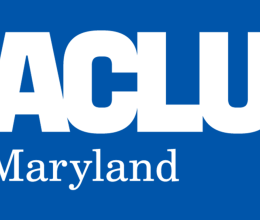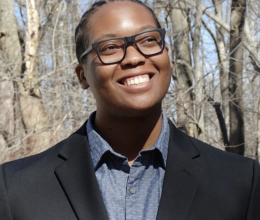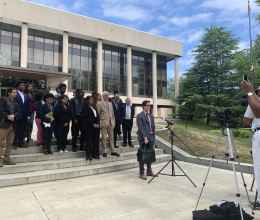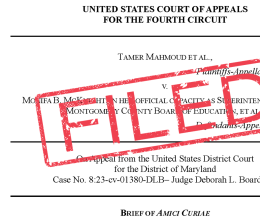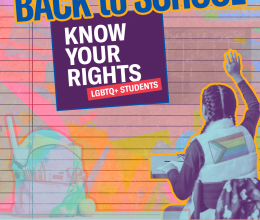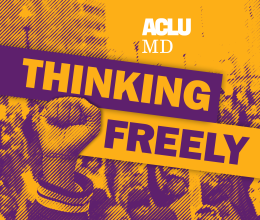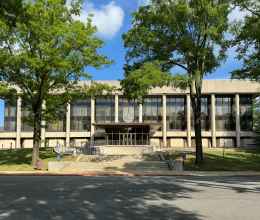
Follow us on Facebook & Twitter to get latest in Annapolis!
Click Here for Printable Version of our Priorities
Legislative Priorities - 2017
Ensure Full and Adequate Funding of Public Education – The ACLU of Maryland’s (ACLU-MD) Education Reform Project will fight to protect education funding and strengthen the education funding formula.
In General Assembly 2017, we will work to ensure full funding of the current education funding formula including the formula’s inflation factor. Flat funding of the formula[1] over the past 9 years has resulted in a $1.6 billion statewide annual adequacy gap[2] — this is the amount by which the current formula is underfunded. Inflation increases also play an important role in helping school systems’ ability to meet rising costs without cutting resources to the classroom. ACLU will oppose any efforts to decrease education funding.
Strengthen Education Funding Formula – Expert consultants have recommended to the “Kirwan” Commission that Maryland schools need an additional $2.9 billion to meet Maryland’s constitutional mandate and prepare students to succeed in college and careers. We will work closely with legislators, and the Commission, to improve the education formula so that all Maryland students have the resources required to meet state standards. We urge policy-makers to focus on these key issues, among others, related to the adequacy study:
- Full-day prekindergarten services for low-income three- and four-year-olds;
- Dedicated funding for schools in concentrated poverty;
- Support and funding for the community schools strategy[4]; and
- Equity in provisions for state and local contributions to school funding.
Support Programs for Public School Construction and Building Repairs – School districts across the state have $13-15 billion in unmet school construction needs. In Baltimore, the ACLU launched the Transform Baltimore: Build Schools, Build Neighborhoods campaign with our partners and won a commitment to begin rebuilding Baltimore City’s deteriorating school buildings, the oldest in the state. While the $1 billion program is estimated to reconstruct 23-28 school buildings, there are more than 100 school buildings in serious disrepair that are not covered by this program.
The ACLU-MD will work to:
- Support $400 million in state capital funding for school construction;
- Allocate a fair share of state capital funding for City Schools (historically 11-12%), to keep school buildings that are not funded by the 21st Century Schools Program minimally safe and functional;
- Ensure that at least $6.1 million for the statewide Aging Schools Program is included and kept in the capital budget;
- Support bills that would dedicate state funding – in addition to the state CIP for school construction – to air-conditioning projects; and
- Work to expand City Schools’ 21st Century Schools Program.
Enact Fair Treatment of All Students – All students deserve to learn in schools that are safe and administer discipline policies fairly. The ACLU-MD will advocate for legislation that increases positive school climate and equity in schools and classrooms. Suspending students fails to address inappropriate behavior and is disproportionately given to minority students and students with disabilities, even when punishing for the same offense. Unfortunately, today, ineffective discipline practices negatively impact thousands of students across the state causing them to lose critical instruction time, fall behind, and have a greater likelihood of dropping out. The ACLU-MD will advocate to:
- Expand school supports and promote alternatives to ineffective out-of-school suspensions and expulsions;
- Prohibit suspensions and expulsions of young children, prekindergarten to grade two; and
- Support Restorative Practices and a review of current discipline and student arrest practices across the state.
Oppose Public Funds for Private & Religious Schools – In 2016, the General Assembly made a $5 million appropriation in the budget to fund a “BOOST” voucher program for students to attend private schools. This $5 million could support children in our public school system. More than 97% of the schools receiving the funding are religious schools. In addition, 73% of the scholarships are going to students who were already enrolled in private schools. In 2017, we will continue to oppose the use of taxpayer dollars to fund private schools that do not meet state accountability standards and can and do discriminate against already vulnerable populations, such as students with disabilities.
[1]
Legislative adjustments were made to the original formula including freezing inflation increases.
[2]
Adequacy of Education Funding in Maryland, Dept. of Legislative Services, December 8, 2016.
[3]
The Commission for Innovation and Excellence in Education, referred to as “Kirwan” after the Commission’s chair.
[4]
The community schools strategy brings together a wide range of partners and community resources to promote student achievement, positive conditions for learning and the well being of families and communities (http://familyleague.org/about/steering-committees/community-school-engag...).
